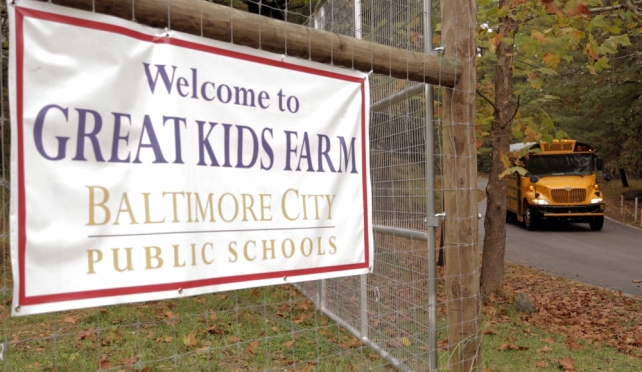“Every new reality begins with a new story.”
- Jurrian Kamp, Founder, The Optimist
I decided some time ago to focus my career on telling stories of positive change—of solutions. While negative news gets our attention and builds vital awareness, positive stories are crucial to inspiring action. Great Kids Farm is one of those stories. It’s also part of a larger unfolding narrative across the country as new values and attitudes toward children’s health, food, and humanity’s relationship with the earth take root and bear fruit.
As we celebrate FGKF’s accomplishments in 2015—and those individuals and organizations who generously supported our mission—I want to highlight four stories that leave me feeling more optimistic about the larger societal narrative in which the Farm plays a part.
The business of food is changing. With consumers increasingly rejecting processed, sugar-infused, antibiotic-laden foods, big brands are taking action—and taking a step back in time to the days when people could actually understand the ingredients listed on a label. This massive shift in how people eat is welcome news in efforts to protect and promote children’s health.
Schools are serving healthier foods. This month marks the 5th anniversary of the Healthy, Hunger-Free Kids Act. Recent studies confirm that the nutritional profile of school meals has improved substantially since the Act’s standards went into effect in 2012. According to the Pew Charitable Trusts, the benefits of the new standards include increased student consumption of fruits and vegetables, and greater access to meals, including breakfast, among students in high poverty areas.
Successful efforts are also underway to leverage the collective purchasing power of schools to drive the availability of healthier foods. In October, the Urban School Food Alliance, a coalition of six of the nation’s largest school districts, announced a partnership with the Alliance for a Healthier Generation to leverage $3 billion in purchasing power to create market-driven improvements in school meals.
Rates of childhood obesity are starting to decline. According to the Robert Wood Johnson Foundation, those cities, counties, and states that have pursued comprehensive approaches have demonstrated the most success. Meanwhile, obesity rates have stopped rising among school-aged children, with the number of calories consumed by the average American child having fallen by at least nine percent in recent years.
Environmental threats are heralding a new era of concerted action. The global climate accord reached in Paris just days ago came about through unprecedented consensus-building and collaboration. As articulated in Pope Francis’ Encyclical earlier this year, the urgency of climate change calls for new ways of thinking and more comprehensive, systems-based approaches if we’re to create a more just, equitable, and sustainable world. Educating children about their role in contributing to a more sustainable planet—and providing students with opportunities to experience the wonder of nature—is fundamental to achieving the changes in behaviors and attitudes needed to safeguard our collective future.
The comprehensive vision of the Farm—as articulated in its new strategic plan—reflects this holistic approach to nurturing children’s health and their appreciation of the living systems upon which we depend.
In his book, The More Beautiful World Our Hearts Know is Possible, Charles Eisenstein writes, “To be a change agent is, first, to disrupt the existing Story of the World, and second, to tell a new Story of the World so that those entering the space between stories have a place to go.” As we navigate this time of profound change, it’s tangible, life-affirming stories like the one embodied by Great Kids Farm that help light the way forward.


